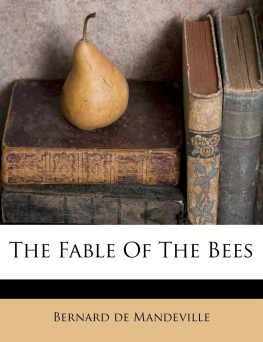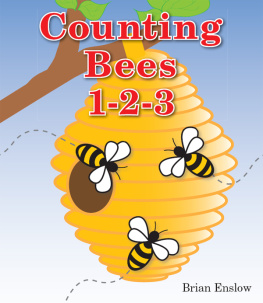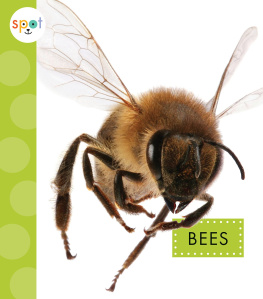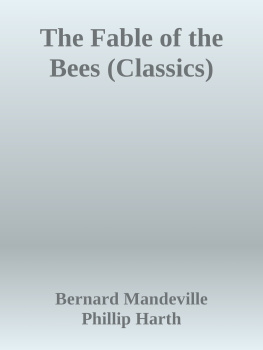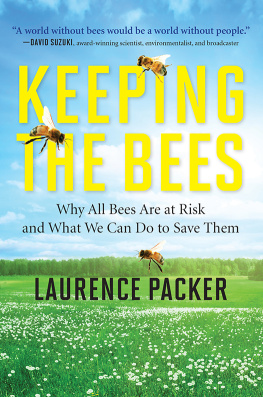Bernard de Mandeville - The Fable of the Bees
Here you can read online Bernard de Mandeville - The Fable of the Bees full text of the book (entire story) in english for free. Download pdf and epub, get meaning, cover and reviews about this ebook. year: 2011, publisher: Nabu Press, genre: Science. Description of the work, (preface) as well as reviews are available. Best literature library LitArk.com created for fans of good reading and offers a wide selection of genres:
Romance novel
Science fiction
Adventure
Detective
Science
History
Home and family
Prose
Art
Politics
Computer
Non-fiction
Religion
Business
Children
Humor
Choose a favorite category and find really read worthwhile books. Enjoy immersion in the world of imagination, feel the emotions of the characters or learn something new for yourself, make an fascinating discovery.
- Book:The Fable of the Bees
- Author:
- Publisher:Nabu Press
- Genre:
- Year:2011
- Rating:3 / 5
- Favourites:Add to favourites
- Your mark:
- 60
- 1
- 2
- 3
- 4
- 5
The Fable of the Bees: summary, description and annotation
We offer to read an annotation, description, summary or preface (depends on what the author of the book "The Fable of the Bees" wrote himself). If you haven't found the necessary information about the book — write in the comments, we will try to find it.
The Fable of the Bees — read online for free the complete book (whole text) full work
Below is the text of the book, divided by pages. System saving the place of the last page read, allows you to conveniently read the book "The Fable of the Bees" online for free, without having to search again every time where you left off. Put a bookmark, and you can go to the page where you finished reading at any time.
Font size:
Interval:
Bookmark:
The Fable Of The Bees, Bernard Mandeville
Jazzybee Verlag Jrgen Beck
86450 Altenmnster, Germany
ISBN: 9783849619008
www.jazzybee-verlag.de
Born on November, 15 th 1670 in Rotterdam, The Netherlands, died on January 21 st, 1733 in Hackney near London, UK. English philosopher and satirist, was born at Dordrecht, where his father practised as a physician. On leaving the Erasmus school at Rotterdam he gave proof of his ability by an Oratio scholasticade medicina (1685), and at Leiden University in 1689 he maintained a thesis De brutorum operationibus, in which he advocated the Cartesian theory of automatism among animals. In 1691 he took his medical degree, pronouncing an inaugural disputation, De chylosi vitiata. Afterwards he came to England to learn the language, and succeeded so remarkably that many refused to believe he was a foreigner. As a physician he seems to have done little, and lived poorly on a pension given him by some Dutch merchants and money which he earned from distillers for advocating the use of spirits. His conversational abilities won him the friendship of Lord Macclesfield (chief justice 1710-1718) who introduced him to Addison, described by Mandeville as a parson in a tye-wig. He died in January (19th or 21st) 1733/4 at Hackney.
The work by which he is known is the Fable of the Bees, published first in 1705 under the title of The Grumbling Hive, orKnaves Turn'd Honest (two hundred doggerel couplets) . In 1714 it was republished anonymously with Remarks and An Enquiryinto the Origin of Moral Virtue. In 1723 a later edition appeared, including An Essay on Charity and Charity Schools, and A Searchinto the Nature of Society. The book was primarily written as a political satire on the state of England in 1705, when the Tories were accusing Marlborough and the ministry of advocating the French War for personal reasons. The edition of 1723 was presented as a nuisance by the Grand Jury of Middlesex, was denounced in the London Journal by Theophilus Philo-Britannus, and attacked by many writers, notably by Archibald Campbell (1691-1756) in his Aretelogia (published as his own by Alexander Innes in 1728; afterwards by Campbell, under his own name, in 1733, as Enquiry into the Original of Moral Virtue ). The Fable was reprinted in 1729, a ninth edition appeared in 1755, and it has often been reprinted in more recent times. Berkeley attacked it in the second dialogue of the Alciphron (1732) and John Brown criticized him in his Essay uponShaftesbury' s Characteristics (1751).
Mandeville's philosophy gave great offence at the time, and has always been stigmatized as false, cynical and degrading. His main thesis is that the actions of men cannot be divided into lower and higher. The higher life of man is merely a fiction introduced by philosophers and rulers to simplify government and the relations of society. In fact, virtue (which he defined as every performance by which man, contrary to the impulse of nature, should endeavour the benefit of others, or the conquest of his own passions, out of a rational ambition of being good) is actually detrimental to the state in its commercial and intellectual progress, for it is the vices ( i.e. the self-regarding actions of men) which alone, by means of inventions and the circulation of capital in connexion with luxurious living, stimulate society into action and progress. In the Fable he shows a society possessed of all the virtues blest with content and honesty, falling into apathy and utterly paralyzed. The absence of self-love (cf. Hobbes) is the death of progress. The so-called higher virtues are mere hypocrisy, and arise from the selfish desire to be superior to the brutes. The moral virtues are the political offspring which flattery begot upon pride. Similarly he arrives at the great paradox that private vices are public benefits. But his best work and that in which he approximates most nearly to modern views is his account of the origin of society. His a priori theories should be compared with Maine's historical inquiries ( Ancient Law, c. V.). He endeavours to show that all social laws are the crystallized results of selfish aggrandizement and protective alliances among the weak. Denying any form of moral sense or conscience, he regards all the social virtues as evolved from the instinct for self-preservation, the give-and-take arrangements between the partners in a defensive and offensive alliance, and the feelings of pride and vanity artificially fed by politicians, as an antidote to dissension and chaos. Mandeville's ironical paradoxes are interesting mainly as a criticism of the amiable idealism of Shaftesbury, and in comparison with the serious egoistic systems of Hobbes and Helvetius. It is mere prejudice to deny that Mandeville had considerable philosophic insight; at the same time he was mainly negative or critical, and, as he himself said, he was writing for the entertainment of people of knowledge and education. He may be said to have cleared the ground for the coming utilitarianism.
Works. Typhon: a Burlesque Poem (1704); Aesop Dress'd, or aCollection of Fables writ in Familiar Verse (1704); The Planter'sCharity (1704); The Virgin Unmasked (1709, 1724, 1731, 1742), a work in which the coarser side of his nature is prominent; Treatise of theHypochondriack and Hysterick Passions (1711, 1715, 1730) admired by Johnson (Mandeville here protests against merely speculative therapeutics, and advances fanciful theories of his own about animal spirits in connexion with stomachic ferment: he shows a knowledge of Locke's methods, and an admiration for Sydenham); Free Thoughts on Religion (1720); A Conference about Whoring (1725); An Enquiry into the Causes of the Frequent Executions atTyburn (1725); The Origin of Honour and the Usefulness of Christianityin War (1732). Other works attributed, wrongly, to him are A Modest Defence of Public Stews (1724); The World Unmasked (1736) and Zoologia medicinalis hibernica (1744).
To which is added, A Vindication of the Book from the Aspersions contain'd in a Presentment of the Grand-Jury of Middlesex, and an abusive Letter to Lord C.
Laws and Government are to the Political Bodies of Civil Societies, what the Vital Spirits and Life it self are to the Natural Bodies of Animated Creatures; and as those that study the Anatomy of Dead Carcases may see, that the chief Organs and nicest Springs more immediately required to continue the Motion of our Machine, are not hard Bones, strong Muscles and Nerves, nor the smooth white Skin that so beautifully covers them, but small trifling Films and little Pipes that are either over-look'd, or else seem inconsiderable to Vulgar Eyes; so they that examine into the Nature of Man, abstract from Art and Education, may observe, that what renders him a Sociable Animal, consists not in his desire of Company, Good-nature, Pity, Affability, and other Graces of a fair Outside; but that his vilest and most hateful Qualities are the most necessary Accomplishments to fit him for the largest, and, according to the World, the happiest and most flourishing Societies.
The following Fable, in which what I have said is set forth at large, was printed above eight Years ago in a Six Penny Pamphlet, call'd,
Font size:
Interval:
Bookmark:
Similar books «The Fable of the Bees»
Look at similar books to The Fable of the Bees. We have selected literature similar in name and meaning in the hope of providing readers with more options to find new, interesting, not yet read works.
Discussion, reviews of the book The Fable of the Bees and just readers' own opinions. Leave your comments, write what you think about the work, its meaning or the main characters. Specify what exactly you liked and what you didn't like, and why you think so.

